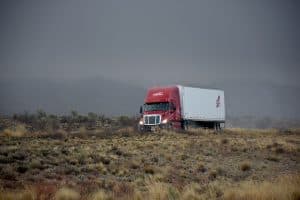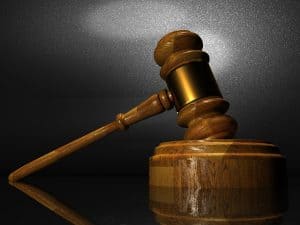Truck accidents are a serious and often devastating event for all parties involved. In addition to the physical injuries and property damage, determining liability in these types of accidents can be complex and contentious. In this guide, we will discuss the key factors that are considered when determining liability in a truck accident. This information can help you understand the process and make informed decisions if you are involved in a truck accident. Whether you are an individual seeking compensation for damages or a trucking company defending against liability, understanding these key factors is important.

Understanding the Legal Framework for Establishing Liability
The legal framework includes various laws and regulations at both the state and federal levels, as well as common law principles. For instance, you can take into account The Grossman Law Firm, LLC, or other experienced attorneys who specialize in personal injury cases involving truck accidents. They can help navigate through these complex laws and regulations to determine liability. In addition, the legal framework also considers factors such as negligence, duty of care, and causation when establishing liability in a truck accident. These concepts can be difficult to understand without proper legal guidance, which is why it is important to consult with a knowledgeable attorney for assistance.
Key Factors Considered in Determining Liability
When determining liability in a truck accident, several key factors are considered. Factors such as the driver’s behavior, the vehicle’s condition, and possible negligence by the trucking company all play a critical role. The drivers’ behavior behind the wheel is a significant factor, as they are responsible for operating large and potentially dangerous vehicles. Any violations of traffic laws or reckless driving can be used as evidence of negligence. The condition of the truck, including maintenance records and any potential defects or malfunctions, is also taken into account. Lastly, the actions and decisions made by the trucking company, such as hiring practices and adherence to safety regulations, are crucial in determining liability.
Role of Evidence and Proof in Determining Liability
Evidence and proof encompass physical indicators, like vehicle damage and road conditions, alongside witness accounts and expert insights. Obtaining and preserving this evidence is important in building a strong case for either party involved. Note that the burden of proof falls on the party making the claim or accusation, typically the plaintiff in personal injury cases. Therefore, collect evidence and construct a compelling argument to back your stance and determine liability. Moreover, expert testimony can provide valuable insights into technical details related to trucking regulations and industry standards that can help determine liability.

Comparative Negligence
In some cases, both parties involved in a truck accident may share some degree of fault or negligence. Comparative negligence is a legal principle that compares the level of responsibility between the parties and assigns liability accordingly. For example, if it is determined that the truck driver was 80% responsible for the accident while the other driver was 20% responsible, the damages awarded would be reduced by the percentage of fault assigned to each party. This can significantly impact the amount of compensation received by either party and is an important factor to consider in determining liability in a truck accident. Work closely with a skilled attorney who can help navigate this complex legal principle and ensure that you receive fair compensation.
Common Challenges in Determining Liability in Truck Accidents
Despite the legal framework and key factors discussed, determining liability in a truck accident can still present challenges. One common challenge is identifying all parties involved and their level of responsibility. With multiple drivers, owners, and companies potentially involved, it can be difficult to establish who is ultimately liable for the accident. Additionally, conflicting witness accounts or lack of physical evidence can also complicate the process. Work with an experienced attorney who can handle these challenges and effectively present your case in court.
Seeking Legal Counsel
Given the complexity and potential challenges in determining liability in a truck accident, seek legal counsel if you are involved in one. An experienced attorney can help navigate through the legal framework, consider key factors, gather evidence, and handle any challenges that may arise. They can also provide valuable insights and guidance throughout the process, ensuring that your rights are protected and you receive fair compensation.
Determining liability in a truck accident involves considering various factors such as the legal framework, driver behavior, vehicle condition, and evidence. It is a complex process that requires expert legal guidance and careful consideration of all aspects involved. With the help of a skilled attorney, you can navigate through this process and ensure that you receive fair compensation for any damages incurred. Seek legal counsel if you are involved in a truck accident to protect your rights and receive the justice you deserve. Stay safe on the road and always follow traffic laws to prevent accidents from happening.






